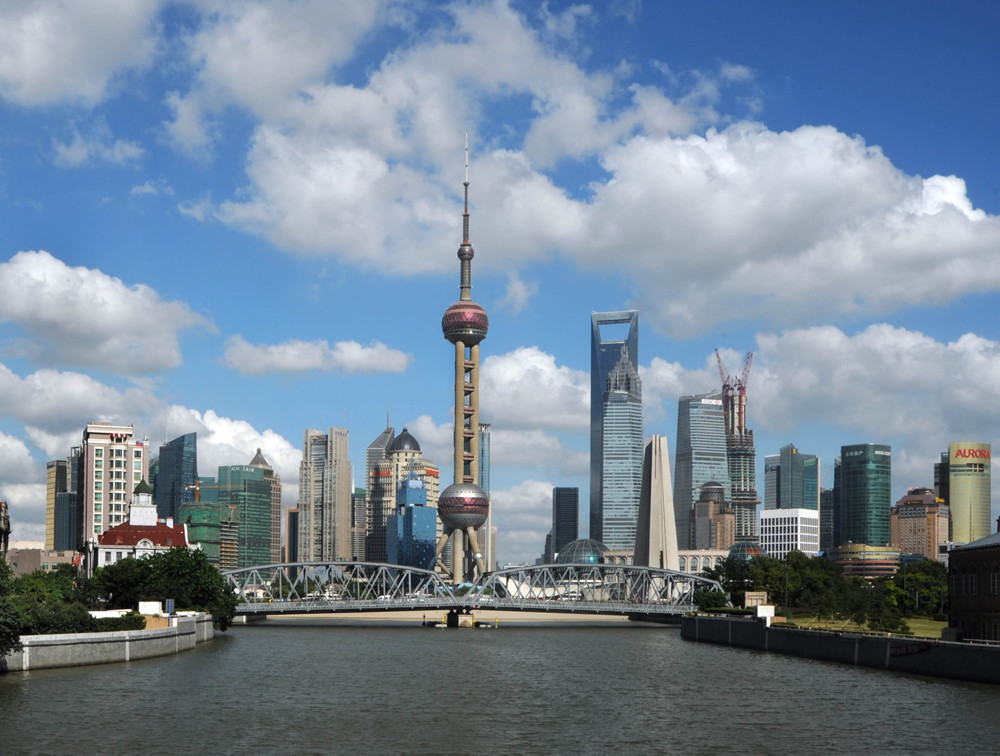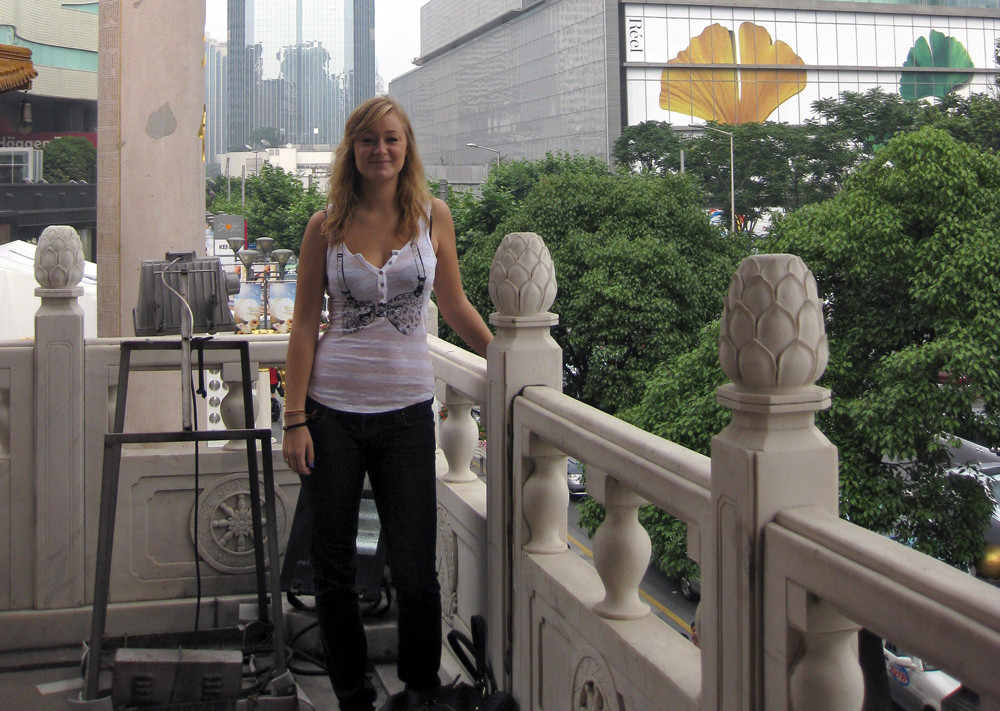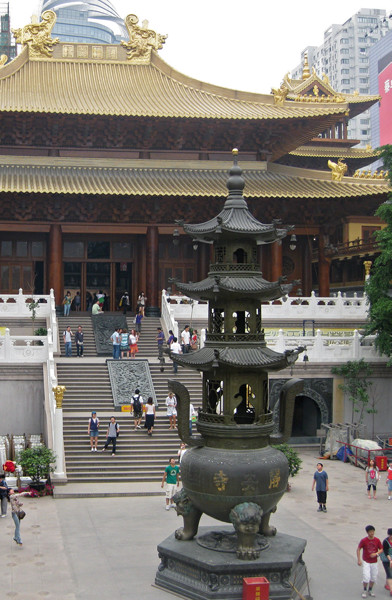Shanghai Never Sleeps: Fast-forward Through Stages of Culture Shock
In the third year of my Bachelor in International Communication, it was mandatory to spend a year abroad - a prospect that left me with a feeling of sheer fear and excitement at the same time. At that point I had never lived abroad in my life, having no idea I was about to embark on the most amazing journey I could have ever imagined. I left behind my beloved Groningen in December 2010 to first spend six months studying at “Rangsit University” in Bangkok, Thailand and then another six months working at a consulting agency in Shanghai (上海), China (中国). The picture I painted in my still inexperienced mind led me to believe that my experience in Thailand was going to prepare me for that notorious ‘culture shock’ teachers warned me about at university. Then by the time I arrived in China I already would have spent a good amount of time in Asia. Countries in Asia cannot really be that different, can they? China taught me different.

© Xinhua
Thailand is called ‘The Land of Smiles’ for a reason. Studying and travelling in this beautiful, warm and friendly country left me smiling as well, dreading the day I had to leave yet excited to start my next adventure: China. Even if you have never been to China, you will most probably have an image in your mind of the country and its people nonetheless. The way I imagined China before my arrival was definitely very different from reality. But then again, I feel that China is too much of a unique country to mentally prepare for anyway.
My first two weeks were filled with excitement, fear and awe. In fact, very much in accordance with the so-called ‘four stages of culture shock’, as asserted by Tsang-Feign (曾芬) in her volume in 1996, I went through a speedy process of experiencing feelings of ‘elation’, ‘resistance’, ‘transformation’, and ‘integration’ during my time in China. Besides constantly admiring the jaw- dropping skyline, the first week consisted of discovering the vast city of Shanghai and exploring its many different and diverse areas. Imagine going everywhere and it is wonderfully crowded; imagine people staring and photographing you like you are a movie star. There is never a dull moment. This is exactly how I first experienced China.

Alas, soon after the novelty wore off I started feeling like a petty foreigner slowly disappearing in the city’s masses. The people I met spoke very little to no English. The Chinese appeared rude, dirty and bad- tempered, leading me to slowly develop an aversion towards the country and its inhabitants. I caught myself constantly comparing China to Thailand and the Netherlands, a phenomenon which I now know is natural, but not very conducive in the process of adjusting to a new culture. However, by going to work every day and meeting more and more people, the period of resistance thankfully did not last very long and I started to accept this astonishingly crowded and smoggy city for what it was. I learned to see every day as a challenge and an adventure, something that I still try to do to this day. I tried to adjust as much as I could, and one way was by taking Mandarin (普通话 Pǔtōnghuà) classes twice a week. This really helped me to understand and appreciate Chinese culture and customs better, and because of the effort I put in I could tell the Chinese people started to appreciate me as well, making me feel more at ease with my surroundings. What I first perceived as rude and dirty now made me giggle and the stares were now flattering rather than frustrating because of the deeper understanding I began to develop of this unique and beautiful culture.
What helped me further in this ‘transformation’ process and will stay in my memory forever is Shanghai’s astonishing nightlife. Not only is it abundant and often over the top – shark tanks in the middle of a nightclub, for instance – but it is also extremely cheap. Furthermore, the Chinese seemed to admire me for my height, blond hair and blue eyes, something they apparently had not seen all that often. When I went out, I was treated like a celebrity, was offered free drinks and a place at their table. Later I learned that this was partly because the Chinese admire the West and it makes them look important and more sophisticated when a Westerner sits at their table. Not only did I notice this phenomenon in Shanghai’s nightlife, it was largely apparent in Chinese business life as well. For example, imagine being the only foreigner at work and one of your tasks is to attend meetings with Chinese clients, even though comprehension is at a bare minimum and not sufficient enough to take minutes. Yet somehow, my presence was appreciated. To me, it was intriguing that mere nationality and looks could mean so much in a megalopolis like Shanghai.

With Shanghai’s incredibly fast growth also come the downsides of Westernisation which were noticeable in the sense that it was hard to find ‘the real China’ at the beginning. However, after a time my Mandarin was strong enough to ask some of my Chinese colleagues to point me in the right direction. Together with some serious exploring of my own I started to find neighbourhoods where nobody spoke English. Enormous families were living together in tiny houses and small restaurants served proper Chinese food. I had found the real China! This is when I feel like I entered the last stage, namely that of ‘integration’. Normally at this stage, culture shock first experienced on arrival has been overcome. That was definitely true in my case. I had about two months left before my flight back to the Netherlands and was not looking forward to it. I felt like Shanghai was now ‘my city’. I wanted to learn more about the culture, history and language. I wanted to see many more places in this vast country. And most of all I never wanted to leave again.
Unfortunately all good things come to an end. I decided to postpone my flight to the Netherlands with a two-week holiday back to Thailand. However, when I got there it seemed my integration with and in China was so strong that I experienced a bit of a reverse culture shock during my holiday in Thailand! How could that be, since I once felt so at home in Thailand and felt like I never wanted to leave?
The most important lesson that China has taught me is that we humans can pretty much get used to anything. One person may adjust more quickly than another and we definitely all go through different processes; but in the end, we often find ourselves amazed by the things we have achieved.
by Elleke Wiewel
Reference:
Tsang-Feign, C. (1996). Keeping your life, family and career intact while living abroad. Hamblan Press, 2nd edition.
 Share on Facebook
Share on Facebook Share on Twitter
Share on Twitter Share on LinkedIn
Share on LinkedIn